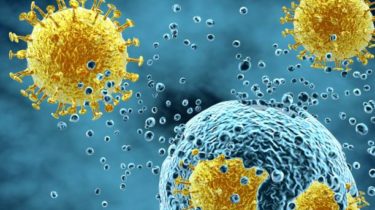Immune Boost

This post was written as part of Pro-Activity’s weekly Prevention Services Blog, a private blog which drops every Friday for Pro-Activity’s employer clients.
The hive is buzzing. Lots of conversation, lots of planning and lots of scrambling about the latest coronavirus and the resulting health concern (COVID-19). I’ve gotten emails and information from just about every organization that has my name. From schools & clubs that my kids attend, to the workplaces I visit, the colleges I lecture at and even the church I attend, it seems everyone is trying to get (and stay) ahead of the viral-risk we face. Generally speaking, this is a good thing – if, as a society, we can stay calm and do the right things (personal hygiene, social distancing and staying vigilant in our lookout for symptoms) we can keep this risk tamped down and get over this latest hurdle.
On the other hand, I’m always a little let down that official sources fail to mention the many ways that we can help ourselves from the “inside out”…..meaning, ways that we can increase our odds of success by taking action that make us a less hospitable “host”, should we come into contact with this (or any other) virus. This of course doesn’t replace the main strategies…..but it can enhance them. So, with that in mind, here are a few headlines you may not have heard of…..with some citations if you have a few minutes to geek out about it:
1. MOVE – Simply put, exercise improves the immune system. Of course, it’s a bit more nuanced than that because there is some evidence that prolonged/max-intensity exercise can leave us depleted and possibly (although hotly-debated) more susceptible to things like the common cold. THIS excellent review with no less than 249 references dives deep and shows that (1) during even a single bout of short term exercise our immune response is heightened, (2) following exercise our immune system remains in a state of alert helping to recognize and kill off invaders and (3) triggering this effect regularly, that is, having an exercise habit improves the immune system on the long term. Oh, and it helps to prevent most major diseases….pretty powerful stuff.
2. FUEL – Although we’ve mentioned the anti-inflammatory impact of healthy eating (especially eating plenty of fresh fruit & vegetables) which has major implications for pain and disease, the news gets even better when you consider THIS research review of 83 different studies and THIS randomized controlled trial (the gold-standard of research). They both showed improved immune function in healthy eaters who are getting adequate “plants” in their diets.
3. RECOVER – as I mentioned last week, sleep quantity AND quality have been tied to immune function, healing and overall health. There is a TON here. One of my favorites, sponsored by the US military, showed that adequate sleep out-performed even nutritional supplementation as it related to healing times; that is the body could repair the skin faster when it was well rested. The skin is the most critical barrier we have – keeping it healthy matters. One other particularly interesting finding (described HERE) is that when we get enough good sleep our immune cells (T-cells) can bind tighter to virus-infected cells which increases the efficiency of ridding the body of them. THIS editorial for example makes it clear that sleep can even impact the effectiveness of vaccines.
4. ENDURE – The number of studies linking stress to immune health is impressive. How we deal with stress is critical when it comes to staying healthy. If we have good coping mechanisms (like numbers 1-4 above) we will usually bounce back quickly from the stresses we face…..but HERE is where it gets very interesting (in 1 geek’s opinion) – stress, as measured through a very accessible measurement (HRV which can now be gathered from a wearable on our wrists) has been tied to immune function. Yep, our heart rhythm and timing can tell us about the health of our immune system.
5. CONNECT – Last but not least, our ability to stay connected even if we wind up having to be physically isolated for health purposes can make a difference. This is especially true when stress (as measured by HRV) is well maintained. THIS 2019 STUDY showed that people with high stress (low HRV) and indications of loneliness had more risk associated with immune markers.
Great news right? The same ELEMENTS that keep us healthy and strong from an injury and illness perspective keep our immune system strong: 20 minutes of physical activity, plenty of fruits/veggies, adequate sleep, avoidance of high-risk stress coping (smoking, excess alcohol, etc) and connecting with friends & family (even if by phone or video call) can go a long way at readying us for the current risk.
Have a great weekend,
Mike E.